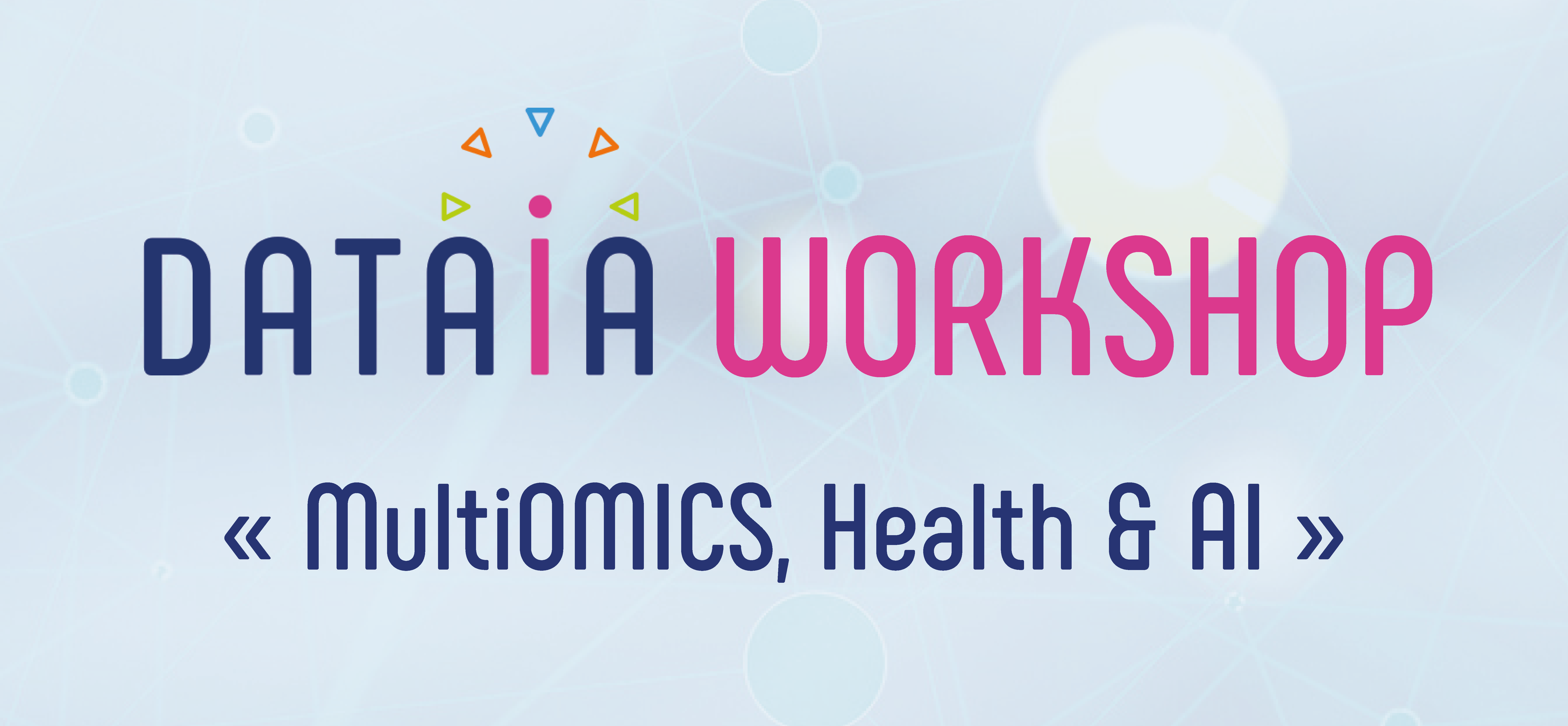This workshop is part of the DATAIA Workshops « Life Sciences & AI », a series of thematic events aiming to bring together scientific communities, experts and professionals from the disciplines concerned to share knowledge and challenges in these fields, consolidate a locally rooted research community and pave the way for the construction of joint projects.
The event will be a half-day long - starting at 14.00.
Due to the latest announcements, the event will be held 100% remotely. The link to the conference will be sent by e-mail only to the registered people.
The program of the day includes academic and industrial perspectives on the subject: a keynote, a methodological session, and a session on the needs raised by the field.
We are sorry to inform you that due to last-minute impediments, we had to cancel Chloe-Agathe Azencott keynote.
14h00 - 14h15
Introduction par Bertrand Thirion (Institut DATAIA), Sarah Cohen Boulakia (Université Paris-Saclay, LRI) et Christophe Ambroise (Université d’Évry Val d’Essonne, LaMME)
14h15 - 15h15
Session besoins :
- « AI for microbiome data science » - Magali Berland (INRAE)
- « Apports et défis liés à l’usage de l’Intelligence Artificielle en recherche biomédicale : exemples applicatifs en oncologie et gériatrie » - Etienne Audureau (APHP)
- « K-mers: a common language for all omics » - Daniel Gautheret (Université Paris-Saclay)
15h15 - 15h30
Pause
15h30 - 16h30
Session methodologie :
- « Deep learning multi-omics data integration for phenotype prediction » - Blaise Hanczar (Université d’Evry Val d’Essonne)
- « Integrating hierarchical information in the analysis of microbiome data » - Mahendra Mariadassou (INRAE)
- « Binacox: automatic cut-points detection for improving prognostication from omics data » - Agathe Guilloux (Université d'Évry Val d'Essonne)
16h30 - 17h30
Session besoins / solutions des industriels
- « Recherche translationnelle du microbiome humaine : possibilités et défis » - Francesco Strozzi (Enterome)
- « Integration and querying of multi-omics data using AskOmics » - Charles Bettembourg (Sanofi)






